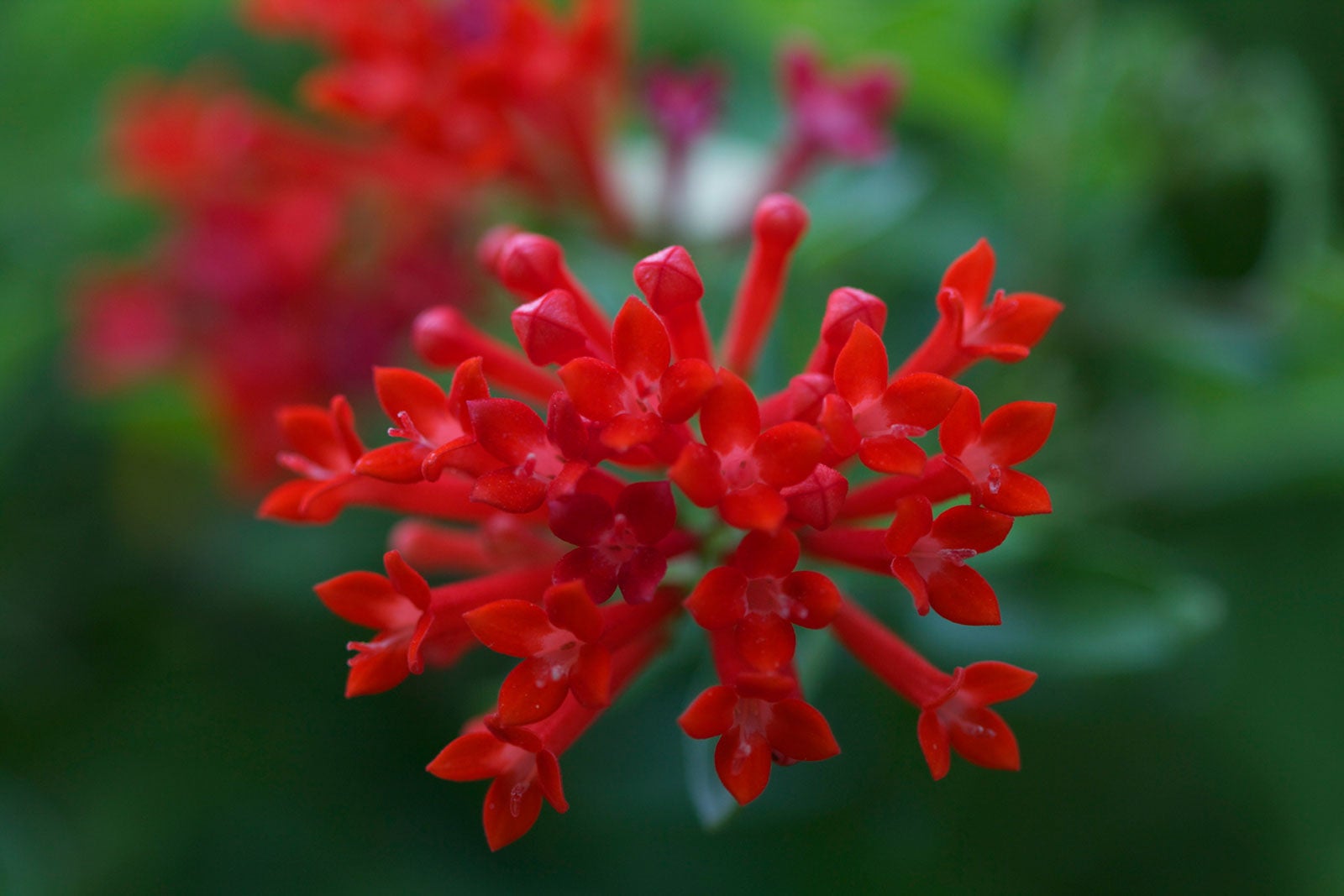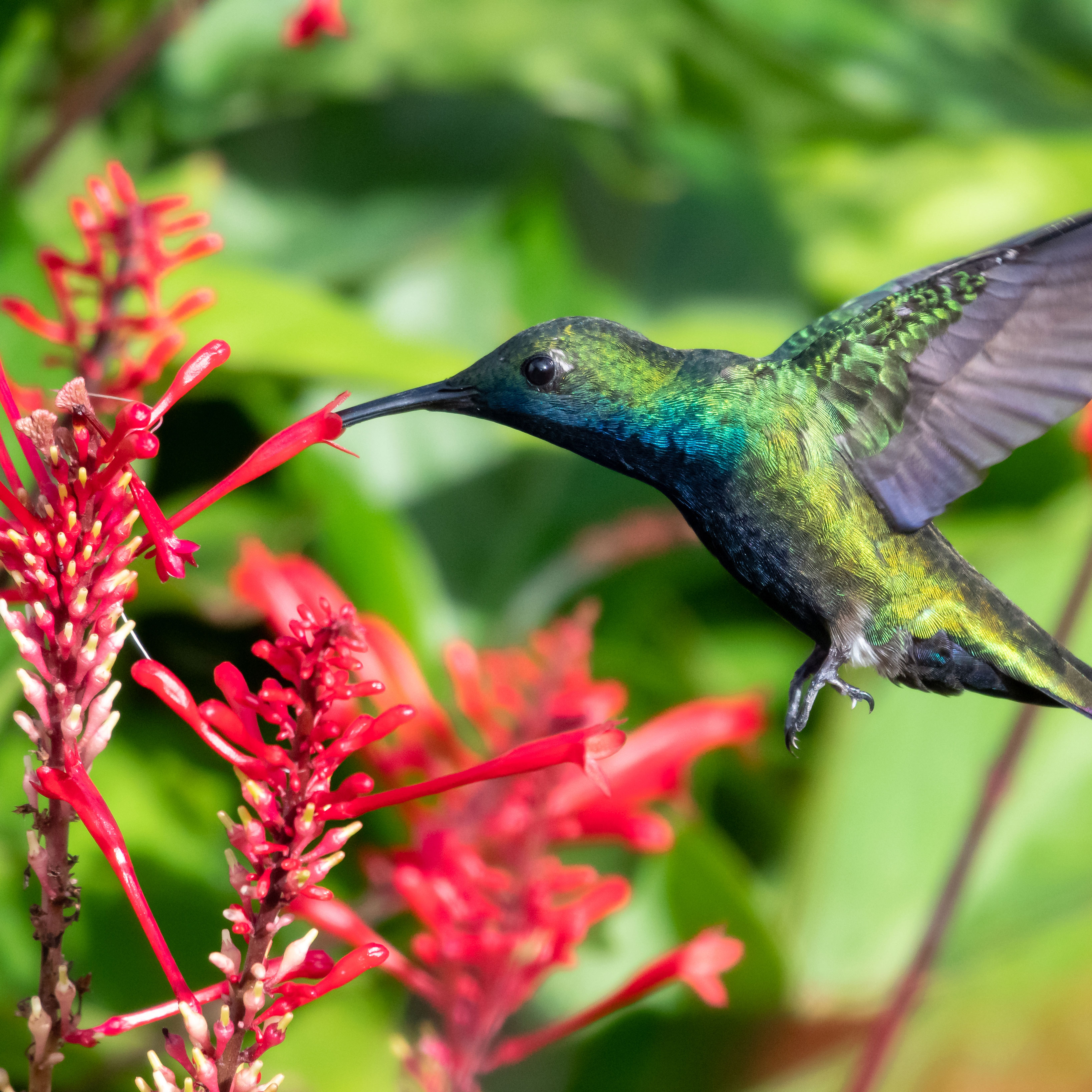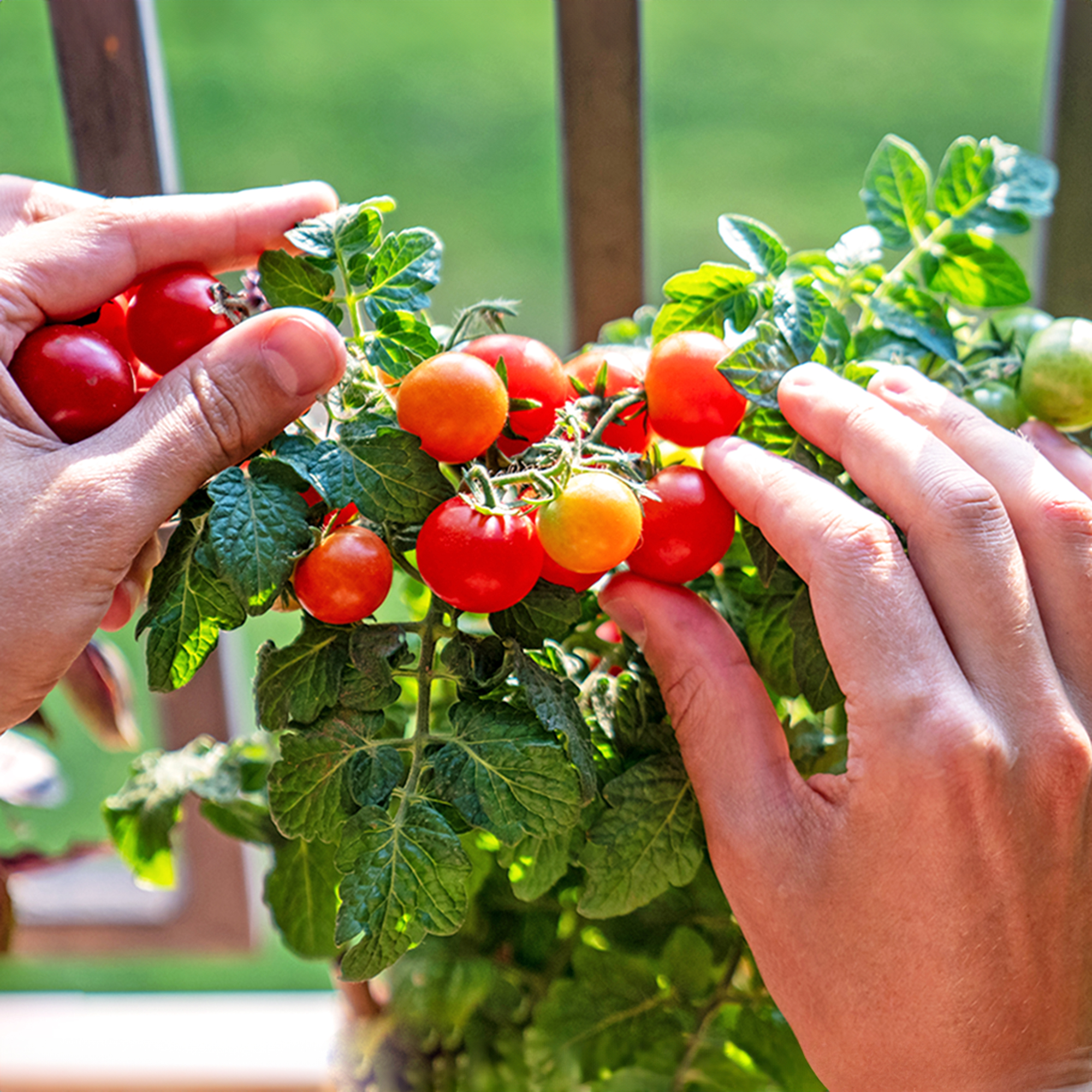Bouvardia Flower Care: Learn About Growing Hummingbird Flowers


Hummingbird flower plant (Bouvardia ternifolia) is also known as firecracker bush or scarlet bouvardia due to the clusters of bright red, trumpet-shaped flowers that appear on stem tips. Hummingbirds, butterflies, and bees love the nectar-rich blooms of this flower.
The hummingbird firecracker bush is native to the warm climates of Mexico and the southwestern United States, but it can tolerate temperatures as low as 10 to 15 degrees F. (-12 to -9 C.). You can also grow this stunning plant indoors. Read on and learn about growing bouvardia hummingbird flowers in your own home or garden.
Growing Hummingbird Flowers
Although it is a perennial, hummingbird flower plants will die back in cooler climates. This low-maintenance plant is easy to get along with and will bloom all winter where temperatures are consistently above 60 degrees F. (16 F.).
Scarlet bouvardia tolerates partial shade, but it will bloom continuously in bright sunlight. Indoors, the plant should be placed in your brightest window. You may need to place it under fluorescent bulbs or grow lights during the winter.
Be sure the plant isn’t crowded and has plenty of air circulation. Humid conditions can invite disease. Similarly, chilly indoor conditions during the winter months can be unhealthy.
Water plants deeply when the soil looks and feels dry. Water potted plants until it runs through the drainage hole, then allow the potting mix to dry before watering again. A little wilt won’t hurt scarlet bouvardia, but soggy soil may rot the stem.
As part of your bouvardia flower care, you’ll want to fertilize regularly, using a balanced, general-purpose fertilizer. Water-soluble fertilizer is generally easiest for potted plants. Remove wilted flowers regularly to keep the plant neat. Regular deadheading also encourages more blooms.
Gardening tips, videos, info and more delivered right to your inbox!
Sign up for the Gardening Know How newsletter today and receive a free copy of our e-book "How to Grow Delicious Tomatoes".
Hummingbird flower plant does well with hard trimming only when it’s actively growing. Cut the plant back to half its height any time it looks tired or untidy.
This plant is relatively pest-resistant but is sometimes prone to attacks by whiteflies. If this happens, insecticidal soap spray is generally enough to keep the pests in control.

A Credentialed Garden Writer, Mary H. Dyer was with Gardening Know How in the very beginning, publishing articles as early as 2007.
-
 Terrifically Tubular Flowers For Hummingbirds: 9 Tube-Flowered Plants To Attract Hummers
Terrifically Tubular Flowers For Hummingbirds: 9 Tube-Flowered Plants To Attract HummersGrowing tubular flowers for hummingbirds helps you create the optimum feeding conditions for your winged friends. Here are nine tubed delights for hummers
By Tonya Barnett
-
 How To Grow Hydroponic Tomatoes For Fresh Indoor Harvests – No Soil Required
How To Grow Hydroponic Tomatoes For Fresh Indoor Harvests – No Soil RequiredLearning how to grow tomatoes in water is easy and allows you to harvest fresh-home-grown produce in every season without any mess.
By Ellen Wells